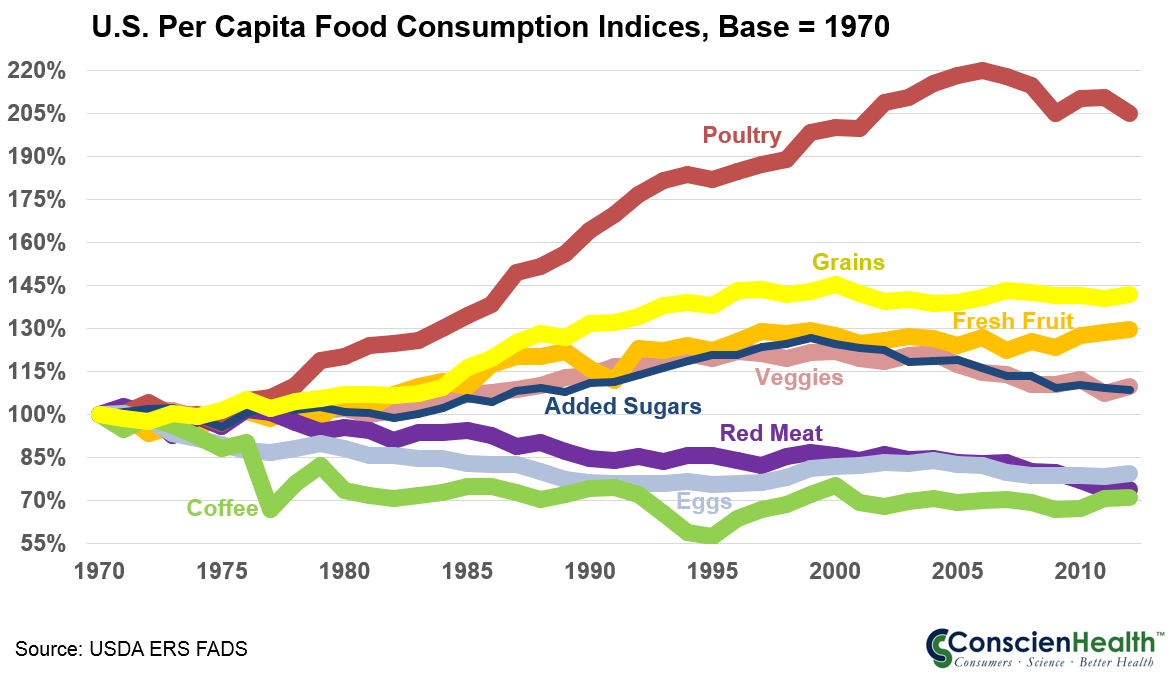
Early Results from Mexico’s Soda Tax
In its first year, Mexico’s soda tax does appear to have caused a reduction in purchases of soda, according to a new study published in the BMJ. Researchers from Mexico and the University of North Carolina at Chapel Hill found a six percent decline in 2014 for sugary beverages that were taxed and a four percent increase in sales of bottled water and other untaxed beverages.
Some observers are quick to leap to a conclusion that these results provide evidence for taxes on sugary beverages working to reduce obesity. Unfortunately this is not true. Consumption of food and beverages across a population is a complex system. It remains to be seen what sort of compensating behaviors will emerge and what the net impact on health will be.
In a companion editorial, Franco Sassi of the Organization for Economic Cooperation and Development cautions that tax strategies may be effective, but they need to be used in combination with other options:
Taxes do have a place in a broader strategy in countries that are facing disproportionate harms from unhealthy diets, but having to make people pay for their potentially unhealthy consumption choices is not a success for public health.
We are inclined to agree. The results from this experiment in Mexico and similar efforts in France bear close observation. Sugar is a nutrient with a bad reputation at the moment, just as fat was in the 1980s and 90s. Reducing sugar consumption may indeed be helpful, but it may lead to consequences that no one anticipates.
 It’s worth noting that statistics on consumption of added sugars and sugary beverages have shown declines in the U.S. for more than a decade now. Those declines have not brought a decline in obesity rates.
It’s worth noting that statistics on consumption of added sugars and sugary beverages have shown declines in the U.S. for more than a decade now. Those declines have not brought a decline in obesity rates.
“If you only have a hammer, you tend to see every problem as a nail.” — Abraham Maslow
Click here to read more from the New York Times, here to read the study, and here to read the companion editorial.
Soda, photograph © matt / flickr
Subscribe by email to follow the accumulating evidence and observations that shape our view of health, obesity, and policy.
January 9, 2016

January 09, 2016 at 6:16 am, Ridge Mason said:
You state, correctly, that the decline in sugar consumption cannot be associated with a corresponding decline in obesity rates. But has the RATE of increase in obesity declined?
January 09, 2016 at 7:34 am, Ted said:
Unfortunately not. https://conscienhealth.org/2015/11/obesity-under-control-no-wait-its-up/
January 10, 2016 at 12:50 pm, Allen Browne said:
It’s not that simple. Many pieces to the puzzle.
January 10, 2016 at 4:29 pm, Ted said:
Agree completely.
January 11, 2016 at 11:35 am, Adam Tsai said:
Ted I am enjoying your posts, wish I had signed up a long time ago. I see the underlying problem as government subsidies for sugar production in Mexico. Adding a tax just compensates on the back end for that.
January 11, 2016 at 2:45 pm, Ted said:
Thanks, Adam. The complex, adaptive system of food consumption is staggering and hidden from view.